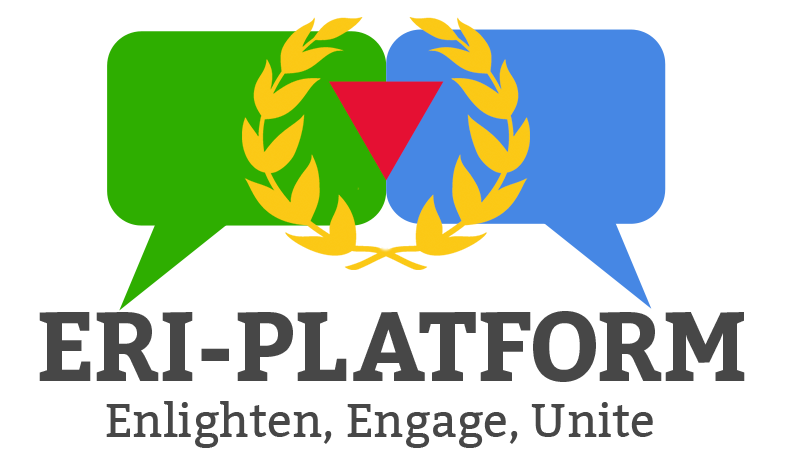![[:swvar:text:838:]](/swfiles/files/202222.png?nc=1747778885)
Commentary by Ambassador Andebrhan Welde Giorgis
A new book, Isaias Afwerki, My Struggle for Eritrea and Africa: Talks with Michel Collon, is being publicised and commented on in the social media. Reserving substantive appraisal of its content on reading the book, a collection of interviews with him by Michel Collon and Mohamed Hassen, I confine my comments to its title.
*****
Michel Collon is a Belgian writer, and journalist for the magazine of the Workers' Party of Belgium and for his own website Investig’Action. Mohamed Hassen is an Ethiopian Somali freelance writer in Belgium, not to be confused with his namesake, the distinguished Ethiopian Oromo historian and scholar, Prof. Mohamed Hassen currently an assistant professor at the Middle East Studies Center at Georgia State University in the US.
*****
President Isaias Afwerki has indeed struggled for Eritrea and led the EPLF to victory in the war of national liberation. Post-independence, however, the record of the objective reality prevailing in Eritrea, particularly since 2000, and the dismal human condition of the Eritrean people today demonstrate that Isaias has struggled primarily to keep himself in power at the expense of Eritrea and the Eritrean people.
The most notable “achievements” of President Isaias’s “struggle for Eritrea” include:
Deconstruction of the Eritrean state. He has banned national elections; shelved the Constitution of Eritrea; suspended the Eritrean National Assembly; emasculated the judiciary; marginalised the cabinet of ministers; and grabbed power, reducing Eritrea into a one-man-show!
Decapitation of the EPLF/PFDJ. He has suspended the Central Council and the Executive Committee of the Front, jailed scores of its most prominent leaders and senior and middle cadres and condemned them to languish under indefinite detention without charge or trial.
Subversion of the rebuilding of the Eritrean economy. Dumping the Macroeconomic Policy Framework and imposing a closed coupon economy that shuns domestic and foreign direct investment have caused economic decline, joblessness and extreme poverty.
Demographic regression of the Eritrean population. Harsh repression, closure of the economy and indefinite national service in violation of its 18-month legal limit have pushed generations of tens of thousands of youths, entrepreneurs and professionals into irregular migration, arresting population growth and causing significant demographic decline.
Acute shortage of housing. The twenty-year ban on housing construction, renovation and maintenance has created an acute shortage of housing, driven real estate prices and rent sky high, scarred Eritrea’s cities and dilapidated their buildings.
Deprivation of basic human needs and essential social services due to deficient and decaying physical and social infrastructure. The great majority of the people suffer from lack of adequate shelter, healthcare, running water, electricity, education, transport and communication services.
Closure of the only university and establishment of quasi-militarised colleges and technical schools that lack international academic accreditation have degraded the standard of education, trivialised higher learning and undermined the building of proficient human capital essential for the political, economic, social and cultural development of the country.
Failure to tap Eritrea’s assets, natural resources and manpower to actualise the country’s huge development potential and improve the wellbeing of the people. Eritrea’s strategic ports with a potential to serve as worldclass hubs of global trade and regional commerce remain idle and undeveloped. Mass exodus represents brain drain and depletion of the labour force. Restriction of the free movement of people, goods and services within the country hampers domestic trade and income generation. Hundreds of millions of dollars in annual revenues from the lucrative mining sector are unaccounted for.
With regards to the claims of Isaias’s struggle for Africa, Isaias scolded the OAU and African leaders during the Cairo summit in 1993 and turned out to be one of Africa’s harshest autocrats ever since. Let alone for Africa, he has proven an abysmal failure for his own country with one of the worst records in contemporary African history.
Regarding President Isaias’s anti-imperialist credentials, suffice it to mention two instances. First, Isaias once commended the French military base in Djibouti as a stabilising presence in the region. Second, Isaias was one of only two African leaders who openly supported the US invasion of Iraq and begged the US to establish a military base in Eritrea to use in the wars against Iraq and Afghanistan.
These are among President Isaias’s notable “achievements’ during 34 years of unaccountable, opaque and devastating autocratic rule. As a result, Eritrea is “so rich and so poor” par excellence. Oppressed, plundered, impoverished and isolated!

